08.01.2015
The next two days, we stay at Lake Bogoria. Apart from relaxing at our accomodation, the Lake Bogoria Spa Resort, we visit the salty Lake Bogoria and its hot springs.


View from our apartment at the Lake Bogoria Spa Resort
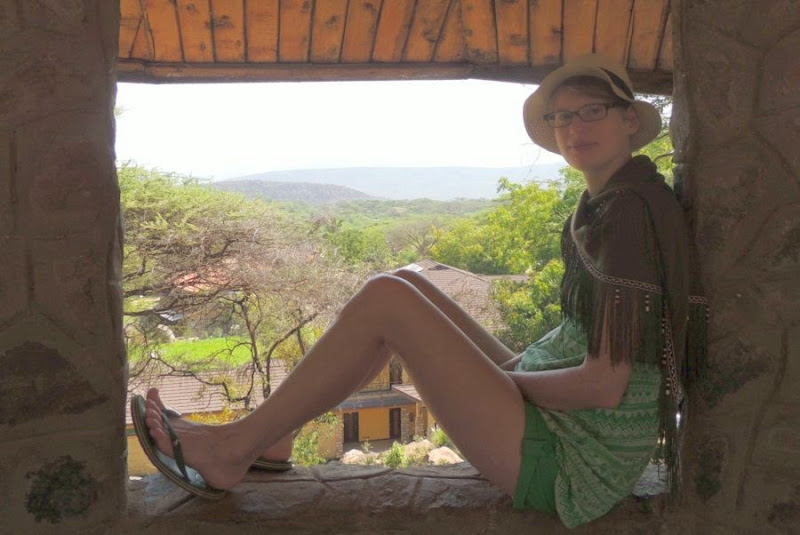
Me

Marabou Storks
Leptoptilus crumeniferus
Marabu

Papaya plantation


Superb Starling
Lamprotornis superbus
Dreifarben-Glanzstar

The plot of our resort is very natural.

Common Ostrich
Struthio camelus massaicus
Afrikanischer Strauß

Jackson's Hornbill
Tockus jacksoni
Jackson-Toko

Vervet moneky
Chlorocebus pygerythrus
Südliche Grünmeerkatze

Poolside
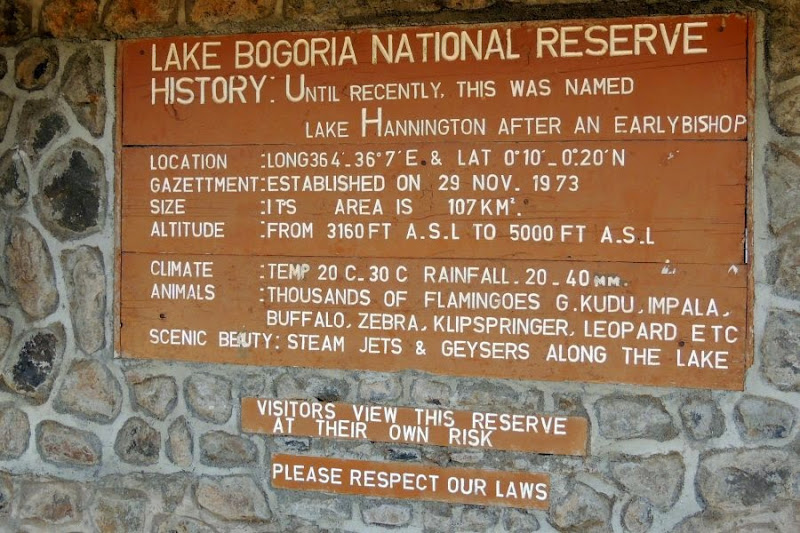
In the afternoon, we visit the Lake Bogoria National Reserve. We explore the lake side and its geysers at western bank.

White-Browed Sparrow-Weaver
Plocepasser mahali melanorhynchus
Mahaliweber
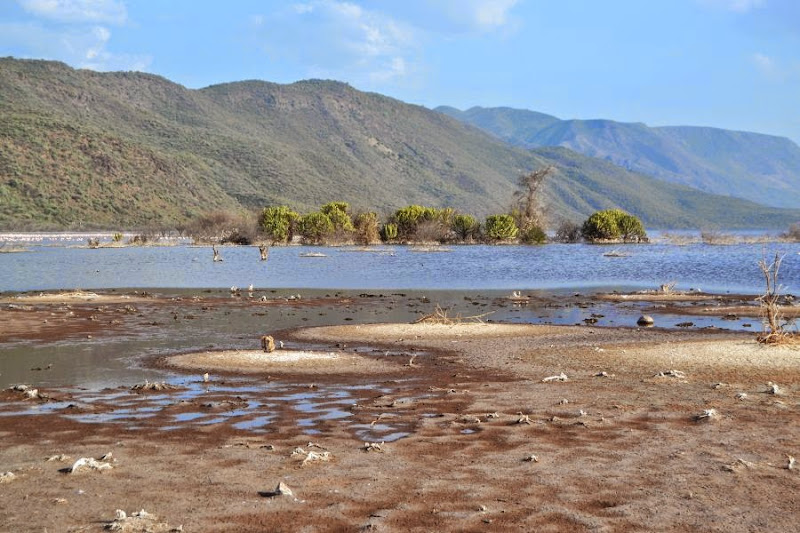
Lake Bogoria is a saline lake that lies in a volcanic region a little north of the equator and in the Rift Valley. The lake is a protected Ramsar site. Since 1973, the Lake Bogoria National Reserve has been a protected National Reserve.

Lake Bogoria is home to one of the world's largest populations of
Lesser Flamingos
Phoeniconaias minor
Zwergflamingo

Dennis and me
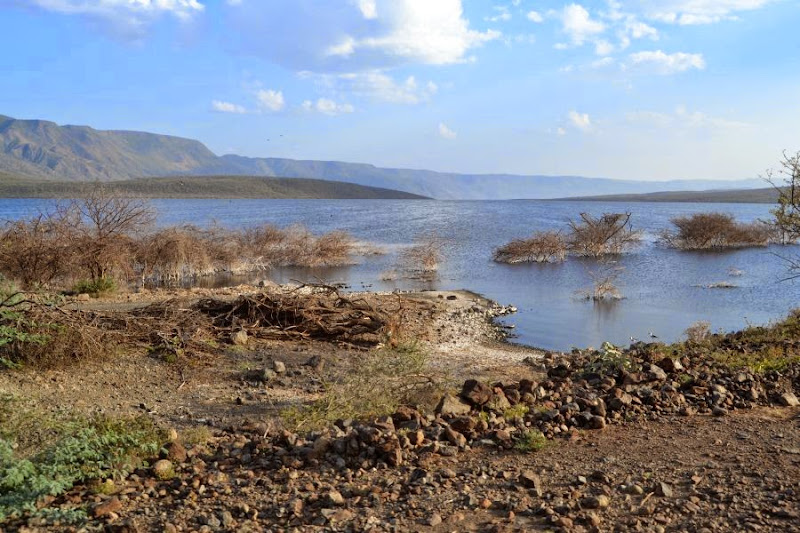

The lake waters are very alkaline and saline. The lake has no surface outlet so the water becomes saline mainly through evaporation, which is high in this semi-arid region of Kenya. Although hypersaline, the lake is highly productive with abundant cyanobacteria that feed the flamingoes.



Common Drongo
Dicrurus adsimilis adsimilis
Trauerdrongo


Black-Winged Stilt
Himantopus himantopus
Stelzenläufer

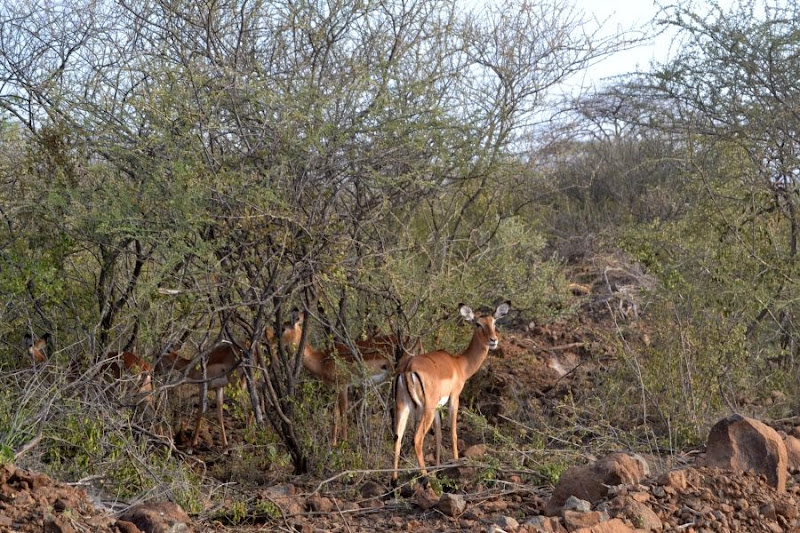
Impala
Aepyceros melampus
Impala


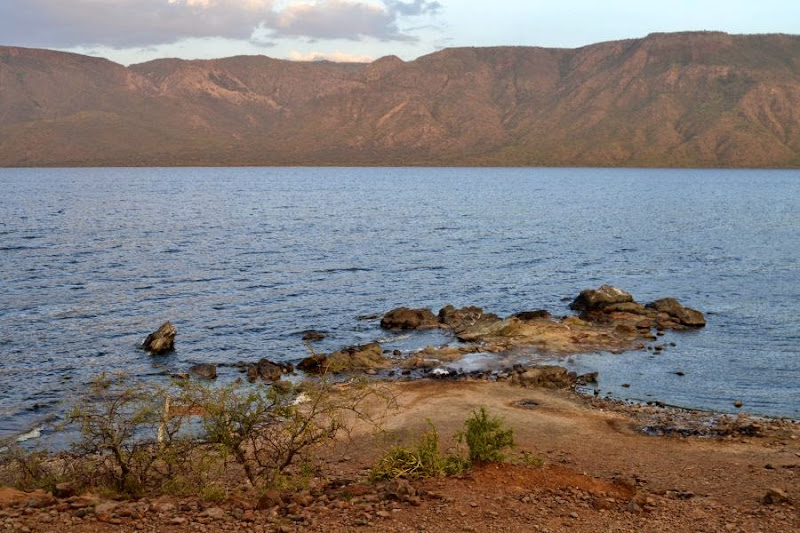
After more than one hour drive along the lake, we reach the hot springs.


Lake Bogoria is famous for its geysers and hot springs along the bank of the lake and in the lake. In four locations around the lake, at least 10 geysers can be observed that erupt up to 5 m high. The geyser activity is affected by the fluctuations of the lake level, which may inundate or expose some geysers.


"Yeah, that's definitely warm!"
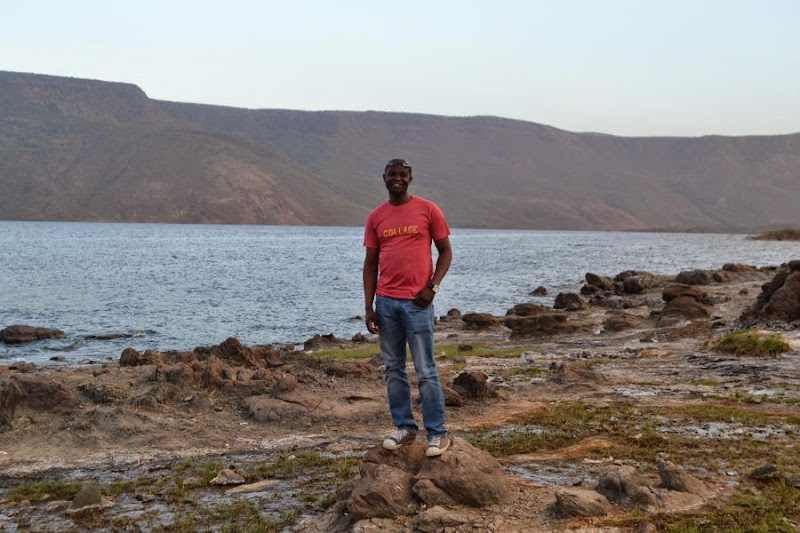
Dennis


Loanne and me
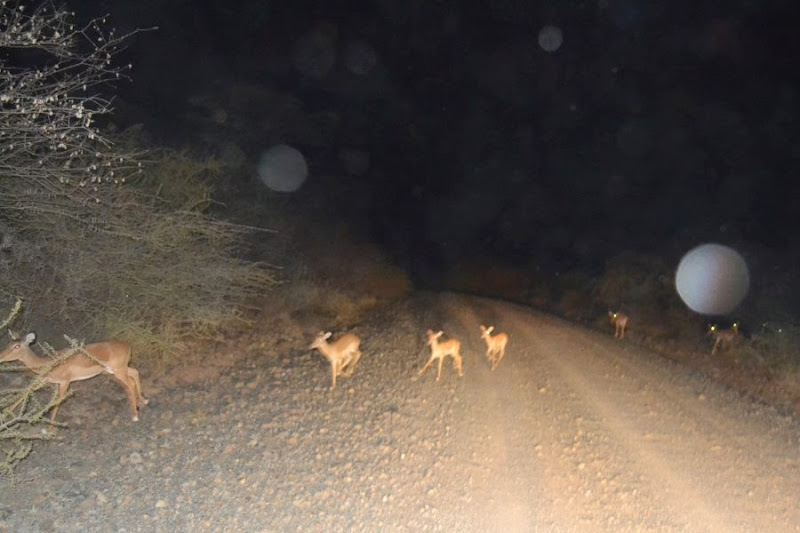
Impalas

and porcupines by night
Hystrix africaeaustralis
Stachelschweine
____________________
09.01.2015
The next morning, a part of our travel group continue the round trip to one more stop, but we go already back to Nairobi.


We're crossing the equator again by going south.
The last days in Kenya, we spend in Nairobi and visit the Zoo of Nairobi.
____________________

Keine Kommentare:
Kommentar veröffentlichen